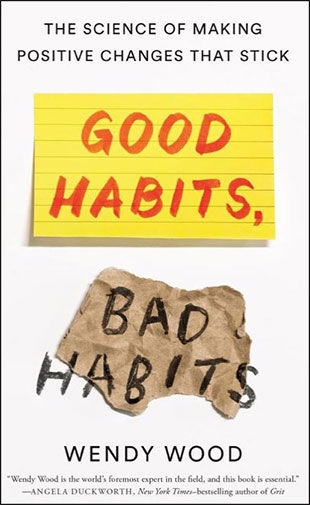We all have bad habits, and the most pesky ones can bring us down mentally, physically, and spiritually. Here are a few:
- Biting fingernails
- Leaving lights on when you exit the room
- Rushed speech
- Leaving keys and wallet in random places
- Not returning things you borrow
- Skipping exercise
- Not drinking enough water
Wendy Wood is Provost Professor of Psychology and Business at the University of Southern California. She lectures widely and has recently launched the website goodhabitsbadhabits.com to present the scientific advantages of habits.
A crucial insight is that for 44 percent of the time our behaviors are habitual, performed without conscious thought; we are operating on autopilot. And when we set out to do something deliberately, competing activities lure us from our goals. As Wood puts it, "We simply get tired of thoughtfully trying to control our behavior and make decisions. Our attention ebbs and our motivation wanes."
The good news is when we are not able to rely upon our will power alone to do what must be done, we can tap into the capacity for persistence that lives within our habitual selves. The author and her researchers call us to a reframed view of habit as "a mental association between a context cue and a response that develops as we repeat an action in that context for a reward." Two other ingredients are needed to break bad habits: friction and resistance.
All those who feel they are spending way too much time looking at their smartphone will want to re-read the last chapter which sheds more light on the science of habits and a path toward breaking a bad habit.
Wood succeeds in painting a meaningful portrait of habits as mental shortcuts that can be used to rerun what we did in the past that proved helpful and gave us some reward.
